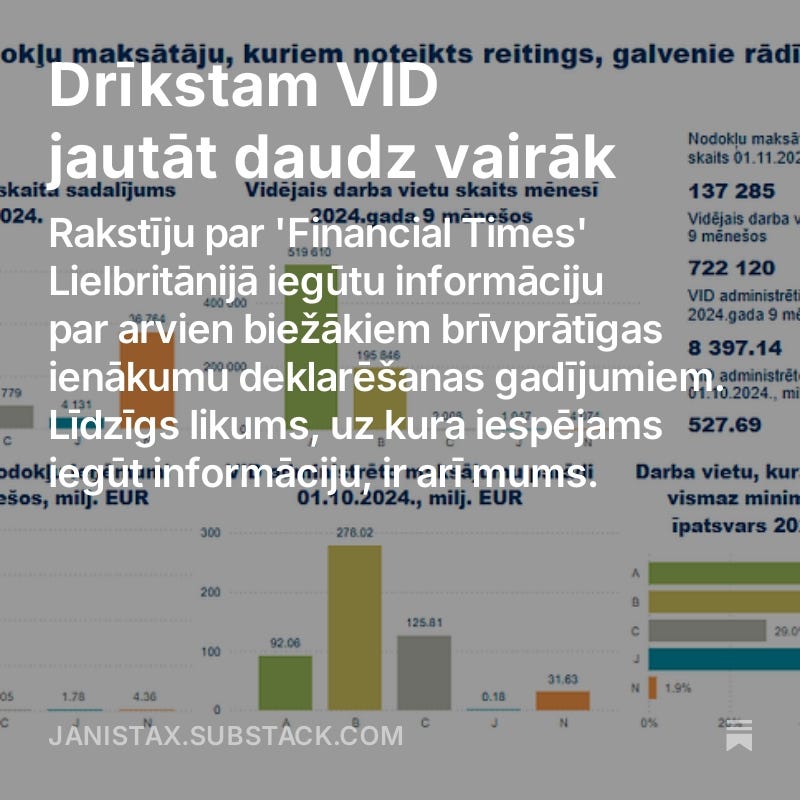We can ask the SRS a lot more
I wrote about the info obtained by the 'Financial Times' in the UK about the increasing number of cases of voluntary income declaration. We also have a similar law, which allows you to obtain info.
Freedom of Information Act
FT was based on the UK Freedom of Information Act. Could a similar Latvian law be applied to the SRS? Individuals can request information held by the SRS, and the SRS is obliged to respond within the specified time limit, except in cases where the information is restricted or classified. Certainly, many, especially journalists, could be more interested in removing the veil of secrecy from the SRS more often. For example, about the permits issued by the SRS to avoid paying tax on payments to Russia, about the results of tax disputes, surcharges assessed vs. really collected, etc.
Statistics
There is a lot of interesting information in the statistics section of the SRS website. For example, the good old Paretto principle works here too. In the visualization prepared by the SRS for 9 months of 2024, it is clearly visible that 18% of taxpayers in the rating A category bring in over 87% of tax revenue. Rating A taxpayers employ an average of 72% of workers, with an average salary of EUR 1,700 per month. 99.85% of budget revenue is brought in only by taxpayers in the A and B ratings. For categories other than A, the average salary of employees varies between EUR 500 - 860 per month. Interestingly, quite a few (27%) are inactive companies.
Izbeigts.lv
BTW, this is an interesting website. According to the law, final decisions in all criminal cases are publicly available. However, in cases where the final decision is the termination of criminal proceedings, documents are destroyed. Journalists requested decisions from the investigative authorities on the termination of criminal proceedings in those cases for which the retention period has expired. There are about 600 cases related to the SRS - there is a lot of interesting things to study.
“Suspicions of violations by officials, the work of investigators, the inefficiency of institutions, even commissioned cases - all traces of this would be destroyed in shredders, but are now available to any interested party,” the aforementioned website says.
Court cases on requesting information from the SRS
There have also been court cases against the SRS in connection with this law. For example,
information held by the SRS regarding the inclusion of transactions of individuals in VAT declarations is considered restricted access information; such information may be provided only if certain prerequisites are met;
if a participant in an administrative proceeding wishes to obtain information that is not included in the case materials, but is at the disposal of the institution that initiated the administrative proceeding, the participant in the proceeding is entitled to apply to court with a separate application;
a lawyer has the right to request the necessary information, including restricted access, during the provision of legal assistance, and the authorities are obliged to provide it; he should not rely on the court to request the necessary evidence, access to which is restricted.





